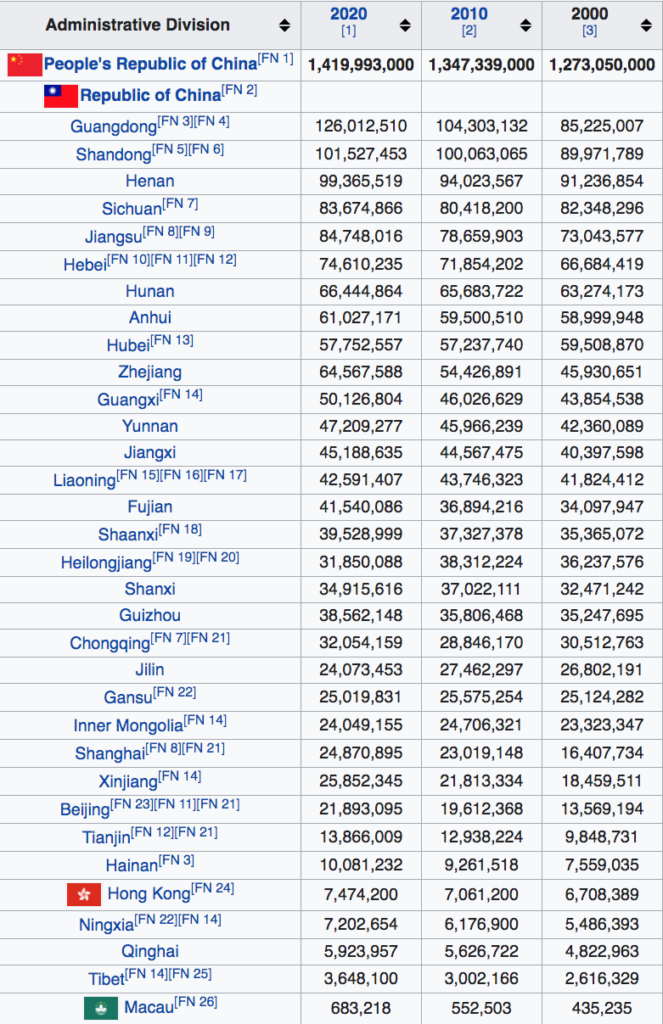Having lived through the Gulf of Tonkin incident, the ridiculous hysteria over Japan during the 1980s, and the post 9/11 hysteria over Iraq, I am dismayed by the bipartisan attempt to gin up a cold war with China. Especially given that Russia is a far greater threat. It has far more nukes, and it seized the Crimea from Ukraine.
Thus it’s nice to see a few thoughtful observors pushing back on the cold war narrative. Peter Beinart has a WaPo piece entitled “Biden’s Taiwan Policy Is Truly, Deeply Reckless“:
By keeping U.S. relations with Taiwan unofficial, the “one China” fiction helped Beijing imagine that peaceful reunification remained possible. Which gave it an excuse not to invade.
Like the Trump administration before it, the Biden team is now progressively chipping away at this bargain. Last summer, Democrats removed the phrase “one China” from their platform. . . .
What’s crucial is that the Taiwanese people preserve their individual freedom and the planet does not endure a third world war. The best way for the United States to pursue those goals is by maintaining America’s military support for Taiwan while also maintaining the “one China” framework that for more than four decades has helped keep the peace in one of the most dangerous places on earth.
Hawks will call this appeasement. So be it. Ask them how many American lives they’re willing to risk so the United States can have official diplomatic relations with Taiwan.
The FT warns that the US military industrial establishment is playing a dangerous game:
Chinese military aircraft are flying into Taiwan’s air defence identification zone on an almost daily basis now, and those flights are increasing in both frequency and range.
But rather than a step towards war, these moves are more likely to be part of a campaign to intimidate Taiwan with so-called grey-zone tactics. Constant fear-mongering over the risk of a Taiwan war only plays into the hands of such a Chinese strategy.
Some security experts see the US Indo-Pacific Command’s warnings of a heightened war risk as an attempt to secure budget funds for propping up the US military presence in the region, as well as to influence the Biden administration’s China policy review.
“This is a defence-driven assessment in the US,” rather than a systemic analysis of Chinese interests in the region, said Bonnie Glaser, a veteran China expert at the German Marshall Fund of the US.* “They have really done a disservice to American national interests.”
The Economist warns of a groupthink on the issue:
“It doesn’t take any bravery to be a China hawk today. It takes bravery to not be one,” says a former official who advised several presidents on China. He and many others see a desire for a new cold war in Washington. . . .
Expertise about China is not necessary. Within government, analysts who once focused on war zones have pivoted to China. Those who preach moderation towards the Chinese government risk being tarred by the most strident hawks as apologists, their motives called into question. Esteemed China specialists who were previously called on by the White House for advice have fallen out of favour.
Commenters on this blog also question my motives.
In Australia, it’s even worse:
The government of Scott Morrison, prime minister since 2018, relishes calling China out. By now, though, the rhetorical flourishes are starting to sound as though it were girding for war. Mr Morrison says Australia must speak with “one voice” on foreign policy, as if scrappy debate was uncalled for, or even unpatriotic. . . .
One veteran Canberra hand describes a dangerous “ideological intolerance” in which moderate voices are drowned out and the debate about China is reduced to emotion. Another senator, Eric Abetz, last year even called on Chinese-Australians appearing before his committee to denounce the Communist Party. That points to a further risk, says Greg Barns, a lawyer: pinko paranoia plays to a xenophobic, racist undercurrent that has long run through Australian life.
Such an undercurrent risks resurfacing if Chinese-Australians face questions or abuse about their loyalty. If the hawks’ tactics end up making Australia seem a less civil, tolerant or welcoming place, then the country will be the poorer for it.
Is China trying to take over the world? You be the judge:
China has blamed the abrupt US withdrawal of forces from Afghanistan for a surge in attacks, after multiple explosions at a girls’ school in Kabul on Saturday killed more than 60 people, most of them female students.
Foreign ministry spokeswoman Hua Chunying said China was “shocked” by the attacks and “deeply saddened” by the death toll. She also called on Washington to pull out troops “in a responsible manner”.
Here’s a question for those of you who think China’s just like the old Soviet Union. Would the Russians have complained about the US withdrawing troops from a country right on the Soviet Union’s southern border?
PS. Speaking of China, the new census showed a huge imbalance in population growth, with some provinces losing population and others growing rapidly. I notice that most of China’s population growth occurred in 4 provinces (Guangdong, Zhejiang, Jiangsu and Fujian.) Those also happen to be China’s most market-oriented economies. It seems like the Chinese people are moving toward capitalism. Perhaps they don’t agree with Western pundits who attribute China’s success to statist economic policies. In contrast, China’s most statist provinces (in the northeast) all lost population–even the one on the coast.

PPS. Sometime this year, Guangdong province will surpass Japan in population.